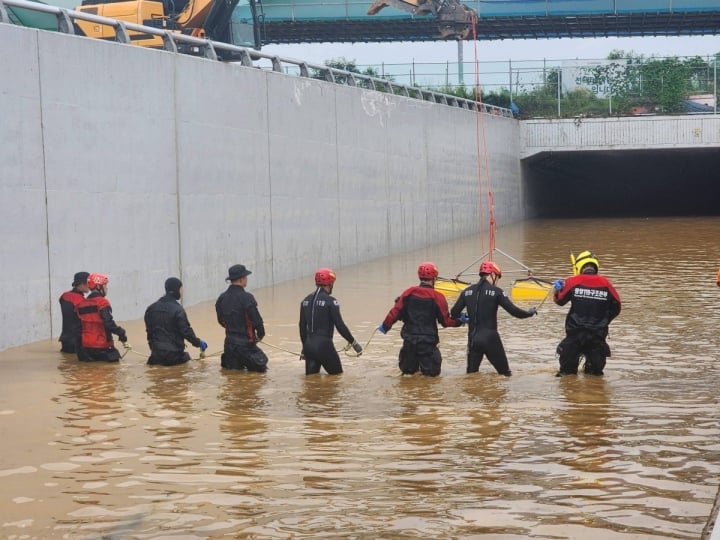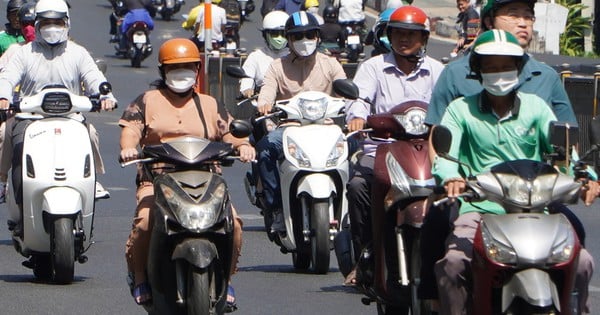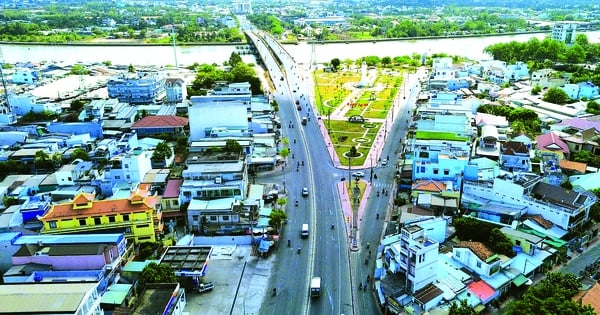The World Meteorological Organization (WMO) on July 18 issued a warning about health risks associated with extreme heat, stressing that the world should prepare for more frequent and intense heat waves.
The agency’s warning comes as many areas in Europe are facing a severe heat wave, with Italy, France, Spain, Greece… witnessing their highest temperatures ever. The island of Sardinia, Italy recorded temperatures of up to 47 degrees Celsius on July 18.

Tourists in Rome drink from a public fountain during an unusual heatwave.
The Spanish Meteorological Agency (AEMET) also said yesterday that the temperature peaked at 45.3 degrees Celsius in the municipality of Figueres in the Catalonia region, while the Balearic Islands suffered a heat of 43.7 degrees Celsius. On the same day, in France, the Meteo France weather agency recorded many temperature records at several weather stations in the South, including the Alps and Pyrenees.
Extreme temperatures are poised to “increase in frequency, duration and intensity,” said John Nairn, senior adviser on extreme heat at the World Meteorological Organization.
“Global temperatures are warmer now than the El Nino of the 1980s. The trend of rising global temperatures continues. So I don’t know that we can really talk about ‘normal’ because it will continue to change. Temperatures will continue to rise,” said Nairn.
In contrast to Europe, Asia has been experiencing severe flooding in recent days. The Yamuna River has reached the walls of the Taj Mahal in India for the first time in 45 years and submerged a garden behind the temple. The river has reached 152 meters, surpassing the “low-level flood” level of 150.8 meters.

South Korean rescuers search for missing people in a flooded tunnel in Cheongju city.
Southern China is also experiencing unusually heavy rainfall. Earlier this week, more than 2,600 residents were evacuated after heavy rain flooded streets and homes in Chongqing, southwest China, according to Xinhua . Heavy rains also affected Sichuan province earlier. More than 85,000 residents there were evacuated.
In South Korea in particular, more than 40 people died in recent floods, prompting South Korean President Yoon Suk Yeol to call for a review of the country's disaster response system to better cope with crises caused by climate change.
Mr. Yoon Suk Yeol emphasized that climate change is causing serious natural disasters and the country cannot cope with unprecedented abnormal weather in the same way as before.
“Severe weather phenomena like this will always be around us and we need to deal with this situation with extraordinary determination,” President Yoon Suk Yeol said.
The world is facing the dire consequences of climate change, according to World Meteorological Organization Secretary-General Petteri Taalas. El Nino will significantly increase the likelihood of breaking temperature records and causing more extreme temperatures in many parts of the world.
A strong El Nino combined with human-caused global warming could push temperatures in 2023 or 2024 to break the 2016 record. Meanwhile, deforestation and changes in the flow of major rivers in Asia are also making floods more frequent.
Therefore, to ensure people's safety and livelihoods, governments need to actively and responsibly participate in the fight against global climate change in addition to establishing early warning systems and preparing for future unstable weather events.
Happiness (Source: VOV Online Newspaper)
Useful
Emotion
Creative
Unique
Wrath
Source









































![[Photo] Prime Minister Pham Minh Chinh chairs Government Conference with localities on economic growth](https://vstatic.vietnam.vn/vietnam/resource/IMAGE/2025/2/21/f34583484f2643a2a2b72168a0d64baa)
























































Comment (0)